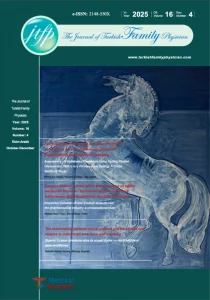Cytisine treatment in nicotine addiction
Tobacco addiction is responsible for many chronic and fatal diseases, such as cancer, various vascular diseases, and lung diseases, and is considered the leading cause of preventable deaths. Medical and behavioral therapy methods have long been used to reduce tobacco addiction, and new methods continue to be discovered. When we examine medical treatments, nicotine replacement therapies, varenicline, bupropion, and more recently, the increasingly popular cytisine stand out. Cytisine is a partial agonist of α4β2 nicotinic receptors. In a Cochrane review, it was identified as one of the three most effective interventions for smoking cessation. It has been used in Eastern and Central Europe since 1964 and was introduced in Turkey in 2024 as a free treatment for tobacco addiction in suitable patients. Due to its effectiveness and lower cost in treating tobacco addiction, it has great potential to benefit health budgets. An advantage of cytisine is that it has the shortest treatment duration among approved smoking cessation medications, with a 100-tablet pack sufficient for a 25-day treatment. This review will provide a detailed examination of cytisine treatment in nicotine addiction.



